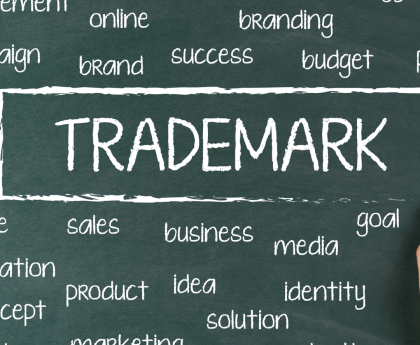How to Register a Business in the USA: A Comprehensive Guide
Register a Business in the USA-Starting a business in the United States can be an exciting venture, but it comes with various legal obligations, including registering your business entity. Proper registration not only establishes your business as a legal entity but also provides numerous benefits such as liability protection, tax advantages, and credibility. In this comprehensive guide, we’ll walk you through the step-by-step process of registering a business in the USA, covering everything from choosing a business structure to obtaining licenses and permits.
I. Understanding Business Structures – Register a Business in the USA
Before registering your business, it’s essential to choose the right business structure that aligns with your goals, liabilities, and tax obligations. The most common business structures in the USA include:
- Sole Proprietorship: This is the simplest form of business where you are the sole owner and responsible for all aspects of the business.
- Partnership: A business owned and operated by two or more individuals, sharing profits and liabilities.
- Limited Liability Company (LLC): An LLC offers liability protection for owners (members) while providing flexibility in management and taxation.
- Corporation: A corporation is a separate legal entity from its owners (shareholders), offering the highest level of liability protection but with more regulatory requirements.
Understanding the pros and cons of each structure is crucial in making an informed decision
II. Choosing a Business Name
Selecting a business name is an important initial step in the registration process. Ensure that your chosen name is unique, memorable, and compliant with state regulations. Consider the following steps:
- Guidelines for Selecting a Business Name: Avoid choosing names that are too similar to existing businesses or violate trademarks.
- Checking Name Availability: Conduct a search on the Secretary of State’s website or use online databases to ensure your desired name is available.
- Registering a DBA (Doing Business As) Name: If you opt for a different name than your legal entity name, you may need to register a DBA.
III. Registering with the Secretary of State
Once you’ve chosen a business structure and name, the next step is to register your business with the Secretary of State in the state where you plan to operate. The registration process varies by state but typically involves:
- Filing Articles of Incorporation or Organization: Submit the required documents, such as articles of incorporation for corporations or articles of organization for LLCs, along with the necessary fees.
- State-Specific Requirements: Be aware of any additional requirements or regulations specific to your state.
IV. Obtaining an Employer Identification Number (EIN)
An Employer Identification Number (EIN), also known as a Federal Tax ID Number, is required for most businesses for tax purposes and hiring employees. Here’s how to obtain an EIN:
- Importance of an EIN: An EIN is necessary for opening a business bank account, filing taxes, and hiring employees.
- How to Apply for an EIN with the IRS: Apply online, by mail, fax, or phone, depending on your preference.
V. Registering for State and Local Taxes
Depending on your business activities and location, you may be required to register for various state and local taxes, including sales tax, income tax, and other applicable taxes. Here’s what you need to know:
- Sales Tax Registration: Register with the appropriate state agency to collect and remit sales tax on taxable goods and services.
- Income Tax Registration: Determine your tax obligations at the state and local levels and register accordingly.
- Other State and Local Tax Obligations: Be aware of any additional taxes or fees applicable to your business operations.
VI. Licensing and Permits – Register a Business in the USA
Many businesses require licenses and permits to operate legally. The specific licenses and permits you need depend on your business type, industry, and location. Consider the following steps:
- Understanding the Necessity of Business Licenses and Permits: Certain industries have strict regulatory requirements for health, safety, and consumer protection.
- Identifying Required Licenses and Permits: Research federal, state, and local regulations to determine the necessary licenses and permits for your business.
- Obtaining Necessary Licenses and Permits: Apply for licenses and permits from the relevant authorities, ensuring compliance with all requirements and regulations.
VII. Understanding Employment and Labor Laws
If you plan to hire employees, it’s crucial to understand and comply with federal and state employment laws and regulations. Consider the following aspects:
- Hiring Employees vs. Independent Contractors: Understand the distinction between employees and independent contractors and the associated legal obligations.
- Compliance with Federal and State Labor Laws: Ensure compliance with laws governing minimum wage, overtime pay, workplace safety, and antidiscrimination.
- Obtaining Workers’ Compensation Insurance: Most states require employers to carry workers’ compensation insurance to cover employees’ medical expenses and lost wages in the event of a work-related injury or illness.
VIII. Intellectual Property Protection – Register a Business in the USA
Protecting your intellectual property (IP) is essential for safeguarding your brand, inventions, and creative works. Consider the following steps:
- Trademarks, Patents, and Copyrights: Understand the different forms of IP protection, including trademarks for brands, patents for inventions, and copyrights for original works of authorship.
- Importance of Protecting Intellectual Property: IP protection prevents others from using, copying, or profiting from your creations without permission.
- How to Register Trademarks and Copyrights: File trademark and copyright applications with the United States Patent and Trademark Office (USPTO) and the U.S. Copyright Office, respectively.
IX. Compliance with Regulations
Operating a business in the USA requires compliance with various federal, state, and local regulations. Consider the following:
- Understanding Regulatory Requirements for Your Industry: Research industry-specific regulations governing your business activities.
- Environmental Regulations: Ensure compliance with environmental laws and regulations to minimize your business’s impact on the environment.
- Health and Safety Regulations: Implement policies and procedures to maintain a safe and healthy workplace for employees and customers.
X. Conclusion
Registering a business in the USA involves navigating a complex legal landscape, but it’s a critical step in establishing a successful enterprise. By following the steps outlined in this guide and seeking professional advice when needed, you can ensure compliance with legal requirements and set your business up for long-term success. Remember, proper registration not only protects your business but also unlocks numerous opportunities for growth and prosperity.
Frequently asked questions (FAQs) about registering a business in the USA:
- What is the difference between a sole proprietorship and an LLC?
- A sole proprietorship is a business owned and operated by one individual with no legal distinction between the business and the owner. An LLC (Limited Liability Company) offers liability protection for its owners (members) and allows for more flexibility in management and taxation.
- Do I need a lawyer to register my business?
- While it’s not required to have a lawyer, consulting with a legal professional can help ensure that you understand the legal implications of your business structure and registration process, especially if you have complex needs or questions.
- How long does it take to register a business in the USA?
- The timeframe for registering a business can vary depending on factors such as the state where you’re registering, the type of business structure, and any additional requirements. Generally, it can take anywhere from a few days to several weeks.
- What is an EIN, and why do I need one?
- An EIN (Employer Identification Number) is a unique nine-digit number assigned by the IRS for tax purposes. You’ll need an EIN to open a business bank account, hire employees, file taxes, and apply for certain licenses and permits.
- Do I need to register my business in every state where I conduct business?
- Typically, you only need to register your business in the state where you have a physical presence, such as an office, store, or employees. However, if you operate in multiple states, you may need to register as a foreign entity in those states.
- What taxes do I need to register for as a business owner?
- As a business owner, you may need to register for various taxes, including federal income tax, state income tax, sales tax, payroll taxes, and possibly other local taxes, depending on your location and business activities.
- Do I need a business license to operate my business?
- The need for a business license varies depending on your location, industry, and the type of business activities you conduct. It’s essential to research and obtain any necessary licenses and permits to operate legally.
- How do I protect my business name from being used by others?
- You can protect your business name by registering it as a trademark with the United States Patent and Trademark Office (USPTO). Trademark registration provides legal protection against others using your business name for similar goods or services.
- What is the difference between an employee and an independent contractor?
- An employee is typically hired to perform services under the direction and control of the employer, while an independent contractor operates independently and is responsible for their own taxes and benefits. It’s essential to correctly classify workers to comply with labor laws.
- What are the ongoing compliance requirements for registered businesses?
- Registered businesses are typically required to fulfill ongoing compliance obligations, such as filing annual reports, renewing licenses and permits, maintaining accurate financial records, and complying with tax obligations at the federal, state, and local levels. It’s important to stay informed about these requirements to avoid penalties and maintain good standing.
Author Note:
This article is authored by Noor Siddiqui from etaxdial.com with the aim of providing valuable information to individuals aspiring to start their own business ventures. As an expert in business registration and compliance, Noor Siddiqui endeavors to share knowledge and insights to guide future entrepreneurs through the process of establishing a business in the USA. The content is intended for informational purposes only and should not be construed as legal advice. Readers are encouraged to seek professional assistance and conduct further research tailored to their specific needs and circumstances. Noor Siddiqui and etaxdial.com are committed to fostering knowledge sharing and supporting individuals in their entrepreneurial journey




